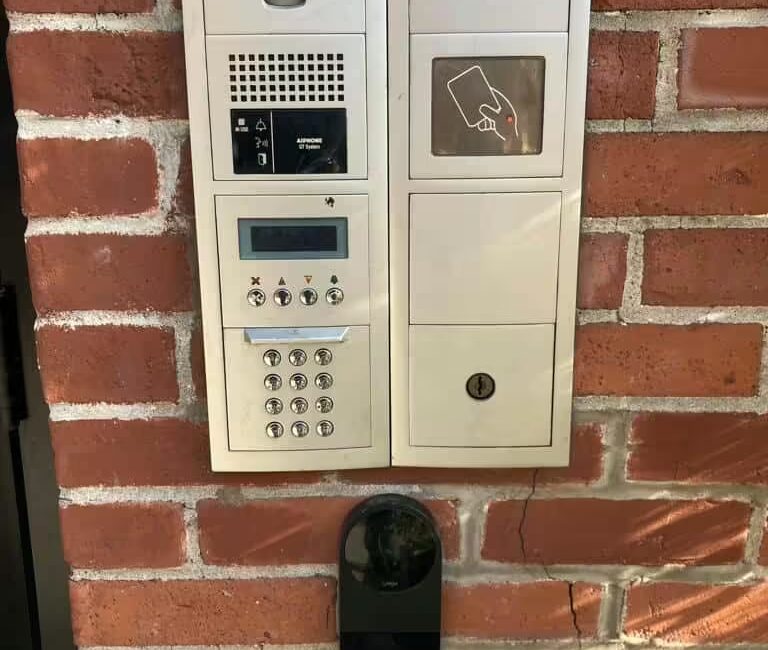Question 1: How can access control systems improve your organization’s security protocols and overall peace of mind?
Answer: Access control systems can improve an organization’s security protocols and provide overall peace of mind by allowing for more efficient and effective management of physical access to facilities and resources. By limiting access only to authorized individuals, access control systems can prevent unauthorized access, theft, and other security breaches.
Question 2: What are the most effective access control system options for large-scale facilities and high-traffic environments?
Answer: The most effective access control system options for large-scale facilities and high-traffic environments depend on the specific needs of the organization. Some options include biometric systems, smart cards, key fobs, and proximity readers. These systems can be integrated with other security technologies to provide a comprehensive security solution.
Question 3: How can access control systems be integrated with other security technologies to create a comprehensive security solution?
Answer: Access control systems can be integrated with other security technologies such as surveillance cameras and intrusion detection systems to create a comprehensive security solution. This integration can improve situational awareness, enhance response times to security incidents, and improve the overall effectiveness of the security system.
Question 4: What measures can be taken to ensure the scalability and adaptability of access control systems for changing security needs?
Answer: To ensure the scalability and adaptability of access control systems for changing security needs, it is important to select a system that can be easily upgraded or expanded. It is also important to work with a provider that offers ongoing support and maintenance to ensure the system remains up-to-date and effective.
Question 5: How can access control systems enhance the efficiency and productivity of your business operations?
Answer: Access control systems can enhance the efficiency and productivity of business operations by automating access management processes and reducing the need for manual access control. This can save time and reduce the risk of errors or security breaches.
Question 6: What are the key considerations when selecting an access control system provider, and how can you ensure the best return on investment?
Answer: When selecting an access control system provider, it is important to consider factors such as the provider’s experience and expertise, the quality of their products and services, and their track record of customer satisfaction. To ensure the best return on investment, it is also important to consider the long-term costs associated with the system, such as maintenance and upgrades.
Question 7: What are the different types of authentication methods used in access control systems, and which ones are best suited for your organization’s needs?
Answer: The different types of authentication methods used in access control systems include biometric authentication, smart cards, key fobs, and proximity readers. The best authentication method for an organization depends on its specific needs and requirements.
Question 8: How can access control systems be used to manage visitor access and improve visitor experience?
Answer: Access control systems can be used to manage visitor access and improve the visitor experience by allowing for pre-registration and automated access management. This can improve security and reduce wait times for visitors.
Question 9: What are the most common security threats faced by businesses, and how can access control systems mitigate these risks?
Answer: The most common security threats faced by businesses include theft, vandalism, and data breaches. Access control systems can mitigate these risks by limiting access only to authorized individuals and providing real-time monitoring and alerts.
Question 10: How can access control systems be used to comply with industry-specific regulations and standards for security and data privacy?
Answer: Access control systems can be used to comply with industry-specific regulations and standards for security and data privacy by providing secure access management and authentication. It is important to work with a provider that understands the specific regulatory requirements and can provide a system that meets those requirements.
Question 11: What types of access control systems are available for businesses?
Answer: There are various types of access control systems available for businesses, ranging from simple systems to complex ones. Some of the most common types include:
Keypad systems: These systems use a numerical keypad for access, with authorized personnel inputting a unique code to gain entry.
Card readers: These systems use proximity cards or swipe cards for access, with authorized personnel using a card to gain entry.
Biometric systems: These systems use physical characteristics such as fingerprints, retina scans, or facial recognition to grant access.
Wireless systems: These systems allow for remote access control, with authorized personnel able to grant or deny access from a central location.
Intercom systems: These systems allow for communication between personnel and visitors before granting access.
Smart locks: These systems use a smartphone app to grant or deny access, with authorized personnel able to remotely control access from their mobile device.
Question 12: How do access control systems improve security for businesses?
Answer: Access control systems improve security for businesses by providing a more reliable and efficient means of controlling access to sensitive areas. With access control systems, businesses can restrict access to authorized personnel only, preventing unauthorized access and reducing the risk of theft, vandalism, or other security breaches. Access control systems also provide a record of who accessed certain areas and at what times, making it easier to investigate security incidents and identify potential threats. Additionally, access control systems can integrate with other security systems, such as surveillance cameras, to provide a comprehensive security solution for businesses.
Question 13: Can access control systems be customized for specific business needs?
Answer: Yes, access control systems can be customized to meet the specific needs of a business. Depending on the size and complexity of the business, access control systems can be designed to restrict access to specific areas, track employee movements, or integrate with other security systems. Access control systems can also be configured to meet compliance requirements for specific industries, such as healthcare or finance. By customizing access control systems, businesses can improve security and ensure that only authorized personnel have access to sensitive areas.
Question 14: Can access control systems be integrated with other security systems?
Answer: Yes, access control systems can be integrated with other security systems to provide a more comprehensive security solution for businesses. For example, access control systems can be integrated with surveillance cameras, allowing for video verification of personnel entering or leaving sensitive areas. Access control systems can also be integrated with alarm systems, notifying security personnel if an unauthorized attempt is made to gain access to a restricted area. By integrating access control systems with other security systems, businesses can improve their security posture and respond quickly to potential threats.
Question 15: How can businesses ensure that access control systems are secure?
Answer: Businesses can ensure that access control systems are secure by implementing best practices for access control management. This includes regularly reviewing access control logs, testing system vulnerabilities, and updating software and firmware as needed. Businesses should also limit access to system administration functions and require strong passwords for all users. Additionally, businesses should have a documented access control policy in place that outlines who has access to what areas and under what circumstances. By following these best practices, businesses can improve their security posture and reduce the risk of unauthorized access.
Question 16: How can access control systems improve compliance with regulatory requirements?
Answer: Access control systems can improve compliance with regulatory requirements by providing detailed audit trails of who has accessed a location or resource, as well as enforcing access restrictions based on regulatory requirements.
Access control systems are essential for businesses operating in heavily regulated industries, such as healthcare, finance, and government. These industries are required to comply with various regulations, such as HIPAA, PCI DSS, and GDPR, that mandate strict security measures to protect sensitive data and resources. Access control systems play a critical role in ensuring compliance with these regulations by providing a secure and auditable method of controlling access to sensitive information and resources.
By implementing access control systems, businesses can restrict access to sensitive information and resources to only authorized personnel, ensuring that only those with a legitimate need to access such data can do so. This helps to mitigate the risk of data breaches and unauthorized access, which can result in costly regulatory fines, legal action, and reputational damage.
Access control systems also provide detailed audit trails of who has accessed a location or resource, when they accessed it, and what actions they performed. This information is critical for compliance purposes, as it allows businesses to demonstrate that they are following regulatory requirements and have implemented adequate security measures. In addition, these audit trails can be used to identify any suspicious activity or potential breaches, allowing businesses to respond quickly and prevent further damage.
Finally, access control systems can be configured to enforce access restrictions based on regulatory requirements. For example, a healthcare organization may be required to restrict access to patient records based on the need-to-know principle, ensuring that only those individuals involved in a patient’s care have access to their records. An access control system can be configured to enforce this restriction, ensuring that only authorized personnel can access patient records.
In summary, access control systems are a critical component of regulatory compliance, providing businesses with a secure and auditable method of controlling access to sensitive information and resources, and enforcing access restrictions based on regulatory requirements. For even more security recommendations, contact a professional locksmith in Philadelphia, PA.

